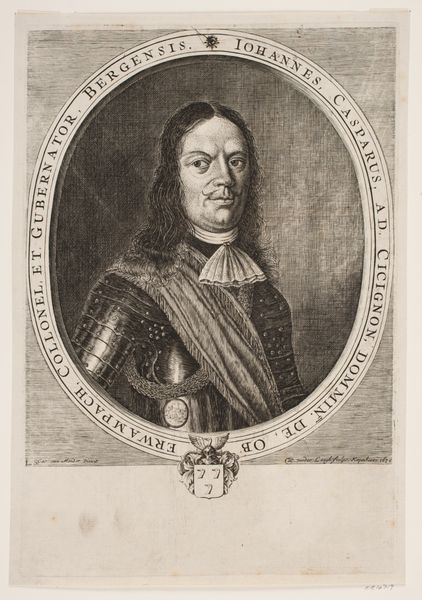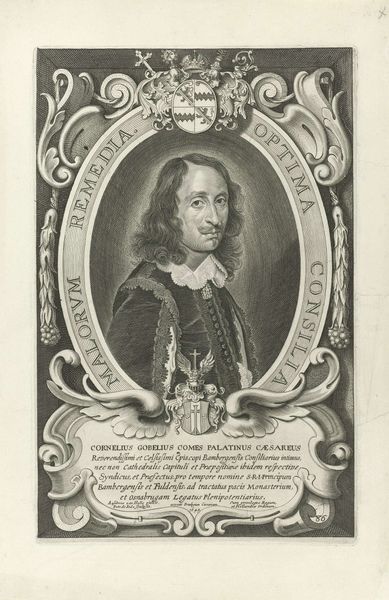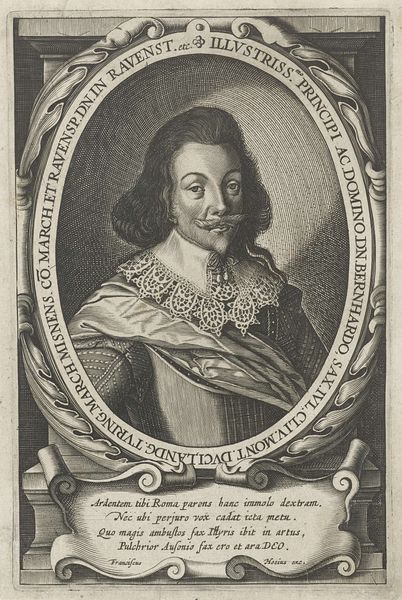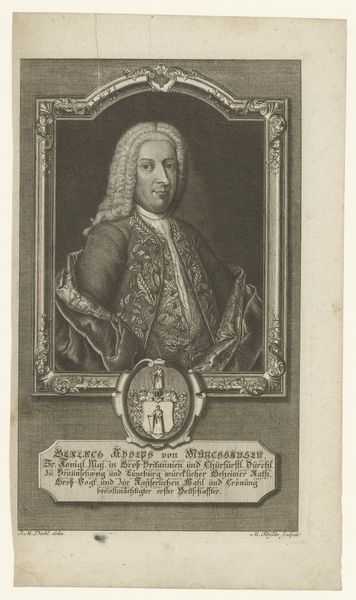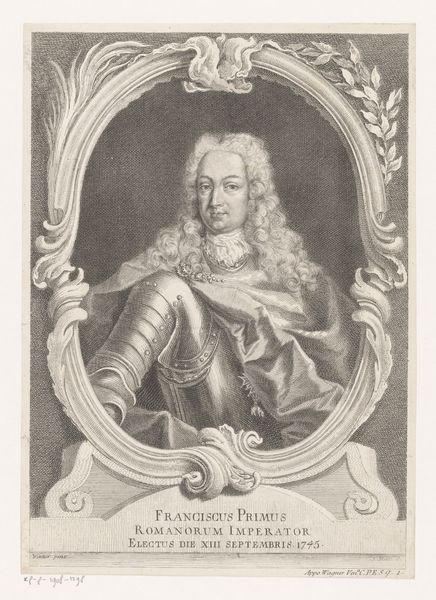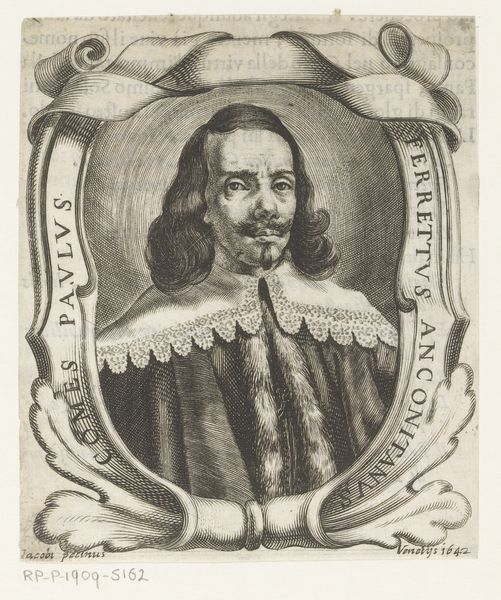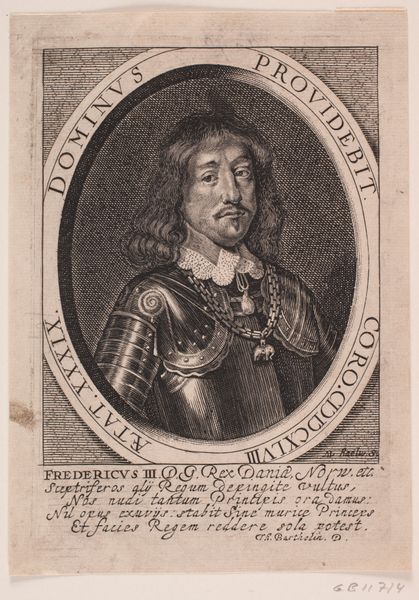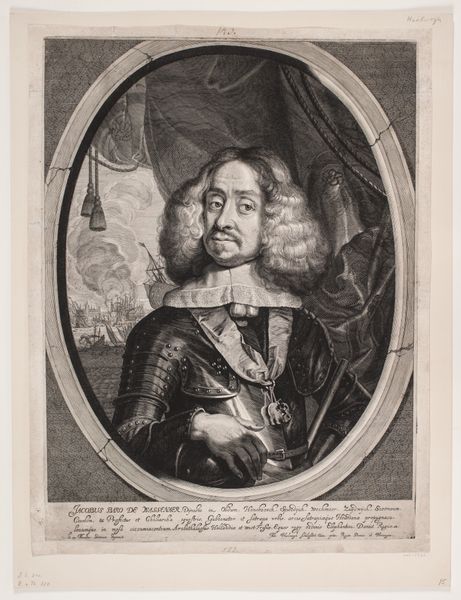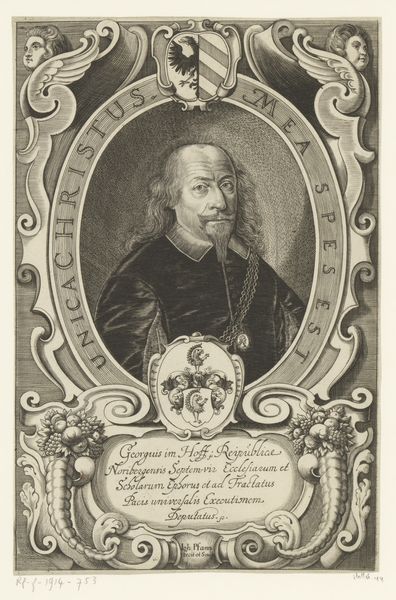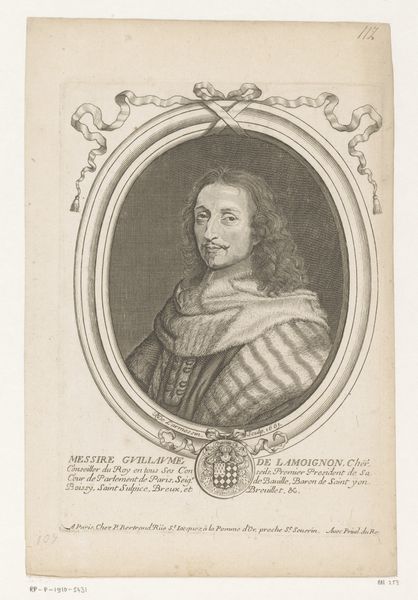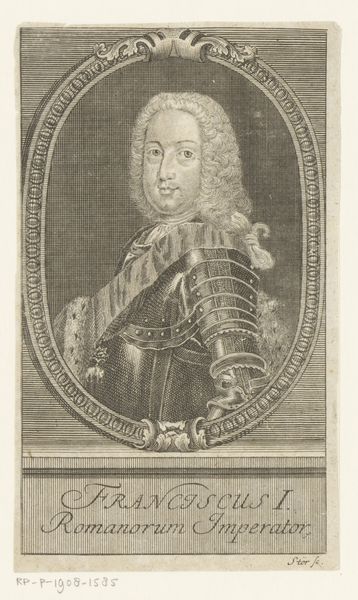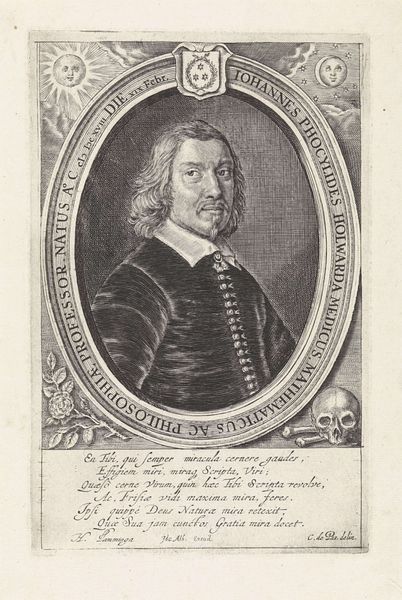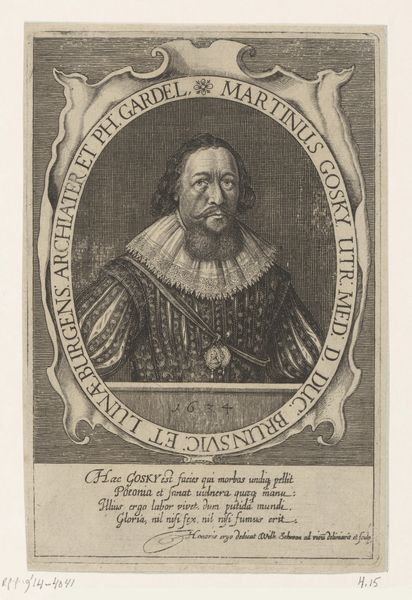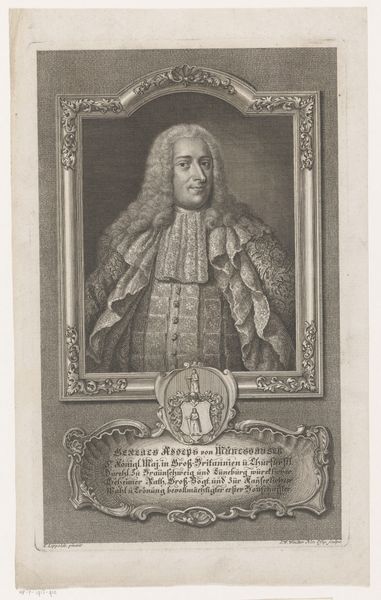
print, engraving
#
portrait
#
baroque
# print
#
history-painting
#
engraving
Dimensions: height 204 mm, width 131 mm
Copyright: Rijks Museum: Open Domain
This portrait of Georg II von Hessen-Darmstadt, made by Jacob van der Heyden, is an engraving, a printmaking technique that involves incising a design onto a metal plate, inking it, and then pressing it onto paper. The precision of this process allows for incredible detail. Look at the way that the lines of the engraving can model the textures and patterns of Georg’s garments, from the delicate lace collar to the intricate embroidery of his doublet. Note, too, how the use of hatching and cross-hatching creates a sense of depth and volume in his face. Engraving was often used for reproductive prints, which democratized images and made them more accessible. But it also had a role to play in shaping perceptions of power. This portrait, with its attention to detail and its classical references, would have served to enhance Georg’s image as a cultured and sophisticated ruler. This reflects the intersection of art, politics, and social status during this period. Ultimately, it challenges the distinction between craft and fine art.
Comments
No comments
Be the first to comment and join the conversation on the ultimate creative platform.
